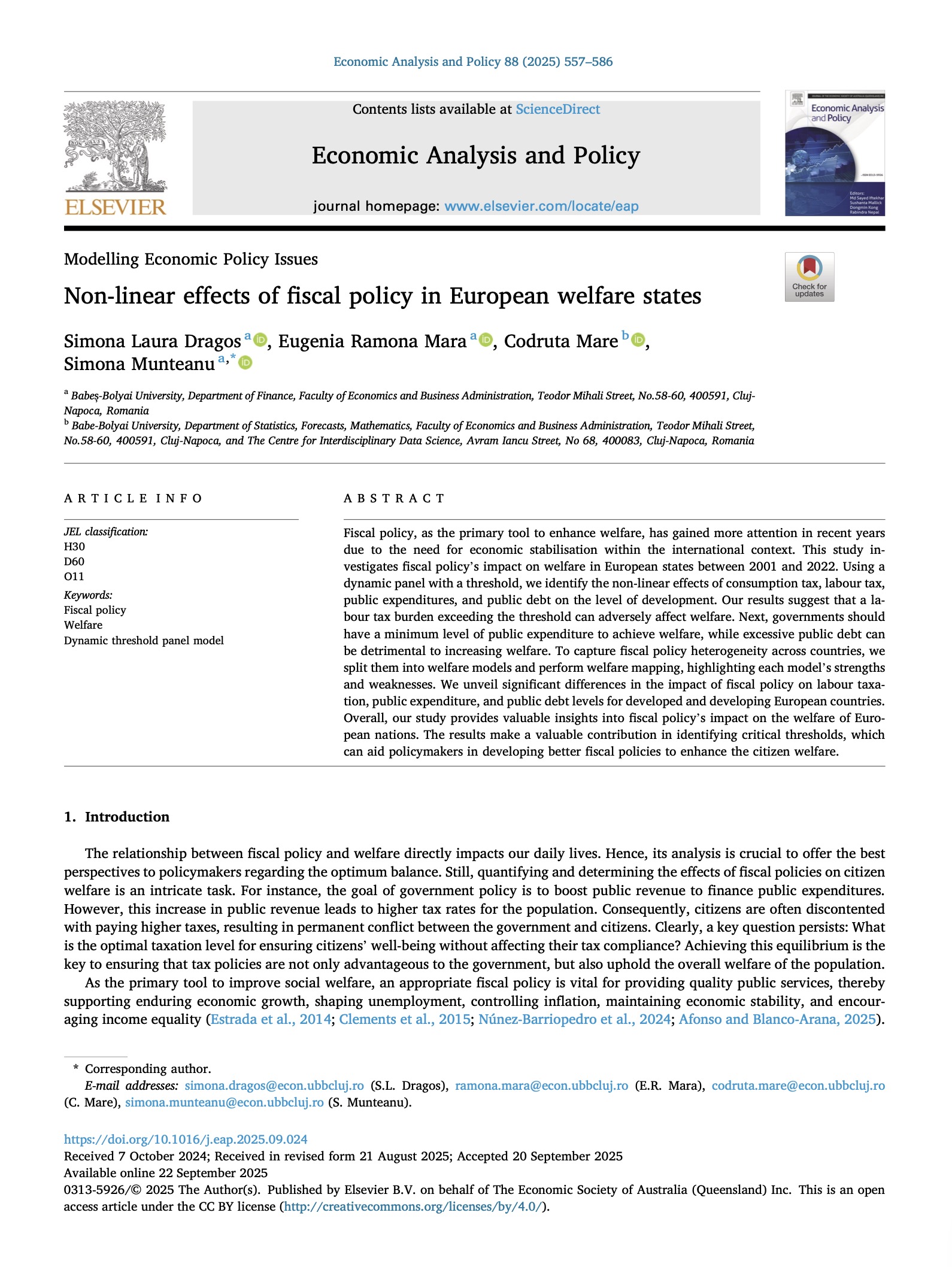|
|
|
Dragos, S.L.; Mara, E.R.; Mare, C. & Munteanu, S. (2025) Economic Analysis and Policy [Core Economics, Q1]
Autor:
Cristina Alexandrina Stefanescu
Publicat:
10 Octombrie 2025
Dragos, S.L.; Mara, E.R.; Mare, C. & Munteanu, S. (2025) Non-linear effects of fiscal policy in European welfare states. Economic Analysis and Policy, 88, 557-586.
DOI: https://doi.org/10.1016/j.eap.2025.09.024
✓ Publisher: Emerald
✓ Categories: Economics
✓ Article Influence Score (AIS): 1,198 (2024) / Q1
Abstract: Fiscal policy, as the primary tool to enhance welfare, has gained more attention in recent years due to the need for economic stabilisation within the international context. This study investigates fiscal policy's impact on welfare in European states between 2001 and 2022. Using a dynamic panel with a threshold, we identify the non-linear effects of consumption tax, labour tax, public expenditures, and public debt on the level of development. Our results suggest that a labour tax burden exceeding the threshold can adversely affect welfare. Next, governments should have a minimum level of public expenditure to achieve welfare, while excessive public debt can be detrimental to increasing welfare. To capture fiscal policy heterogeneity across countries, we split them into welfare models and perform welfare mapping, highlighting each model’s strengths and weaknesses. We unveil significant differences in the impact of fiscal policy on labour taxation, public expenditure, and public debt levels for developed and developing European countries. Overall, our study provides valuable insights into fiscal policy's impact on the welfare of European nations. The results make a valuable contribution in identifying critical thresholds, which can aid policymakers in developing better fiscal policies to enhance the citizen welfare.

inapoi la stiri  vezi evenimentele
vezi evenimentele  home
home 
|